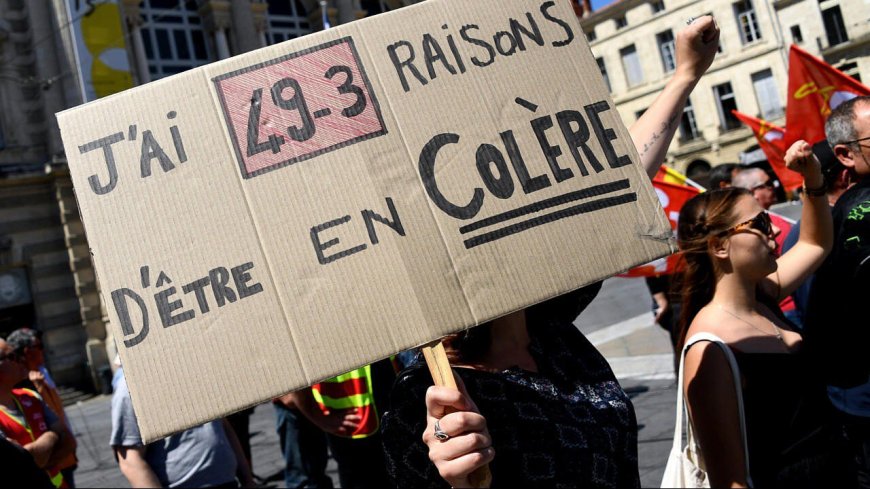How did Article 49.3 of the French Constitution seal the fate of a democracy?

By: F. Najafi
In an effort to save France's pension system from insolvency, Macron seeks to raise the retirement age from 62 to 64, a controversial move that has triggered weeks of demonstrations across the country.
Within the next twenty-four hours, legislators have the option of calling for a motion of no confidence. If more than half the legislators vote in favour of the no confidence resolution, the bill will be rejected and the administration will have to resign. If neither of these scenarios happens, the draft becomes law.
Macron was re-elected for a second term last spring, and Élisabeth Borne has served as prime minister ever since, but since he failed to secure a clear majority in the National Assembly in the 2022 elections, the French government has had to invoke Article 49.3 ten times since the last autumn. Article 49.3 has been used more than a hundred times by different governments in the Fifth French Republic.
Any French administration may only invoke Article 49.3 once per parliamentary session, but may do so as often as needed when crafting the annual budget.












































